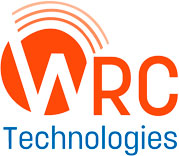The Advanced Mobility Collective Partners with the Colorado Center of Excellence for Advanced Technology Aerial Firefighting to Foster Collaboration
Winter Park, Colo. (Nov. 15, 2021)
The Advanced Mobility Collective has launched the first of its kind ForestTech Center. The Center and partners will foster collaboration to assemble “system of systems solutions” addressing the specific needs of wildland firefighters and forest managers to mitigate, detect, suppress and recover from wildfires.
The ForestTech Center is a catalyst for public and private organizations to implement and accelerate in-field, operational testing for review and adoption by the Colorado Center of Excellence for Aerial Technology Firefighting (CoE). Experts and researchers will establish best practices for fire intelligence, spatial awareness, data processing, procedural excellence, and infrastructure testing. Best practices will be shared to scale throughout the nation and beyond.
The Advanced Mobility Collective is a global collaborative community of business, academic, and government partners fostering new uses of unmanned, multi-modal transport operations on the ground, in the air and at sea.
The Center of Excellence for Advanced Technology Aerial Firefighting (CoE) was created by the state of Colorado to lead development and testing for aerial firefighting technology. The CoE has become a leading research and development team for projects across the public safety service spectrum. Through relationships with numerous Western states, Federal forest management agencies and other governmental bodies, the CoE is a strong influencer of technology adoption for forest and wildfire management.
To improve the safety and effectiveness of first responders during tactical operations, the CoE worked to facilitate adoption of the U.S. government’s Team Awareness Kit (TAK). The Team Awareness Kit was awarded as part of the “Best of What’s New” from Popular Science magazine in 2020 for its use in disaster response by the CoE and other agencies. The CoE will continue to foster development and deployment of TAK through collaboration with military and civilian stakeholders and partner public safety agencies.
Unmanned vehicles and advanced sensor systems can be deployed to aid in targeted mitigation efforts, identify fires early and rapidly deploy suppressants. These technologies must operate within a complex system of supporting technologies and an operational framework to be successful. New communication and information technologies will assist firefighters by providing the information to make decisions and the command capabilities they need to optimally direct resources.
Unmanned systems equipped with a wide variety of sensors and cameras can monitor extensive tracts of land. Systems can collect data from a new array of land-based sensors. Fixed cameras deployed in strategic locations can monitor entire watersheds. Systems can collect data from sensors on firefighters, vehicles and aircraft, enable unmanned and manned aircraft to safety share airspace, and give commanders a complete view of all active operations.
“One of the biggest challenges for firefighters is enabling communications technology in wildlands,” said Ben Miller, director of the Center of Excellence for Advanced Technology Aerial Firefighting. “The ForestTech Center will establish a variety of communication services to be evaluated and lead to new systems to share data. The result will be the ability to design and deploy mesh networks of communication technologies that will interoperate and support rapid expansion.”
The Advanced Mobility Collective, founded in 2019, is continuing to build and expand its network of partners as an economic development and public benefit initiative of the Wireless Research Center. Both organizations have expertise and established partnerships with diverse technology and industry organizations.
For example, the WRC is leading the deployment and operation of advanced wireless 5G testbeds for the nation’s third advanced wireless research platform supported by an industry consortium and a $24 million grant from the National Science Foundation. Initial testbeds for autonomous drone and mobility systems are planned in North Carolina.
“The ForestTech Center is another example of bridging the gap between research and proof of concept, leading the transition to the business community providing the next generation of products and services,” says Todd Spain, Executive Director of the AMC. “Ultimately, this creates a framework that can be adapted to other natural disasters including flooding and healthcare emergencies.”
About the Advanced Mobility Collective
The Advanced Mobility Collective is a private, nonprofit facilitator of innovation building an ecosystem of business, government and research partners to birth new mobility services. As a catalyst for collaboration worldwide, the Collective reduces barriers and unites essential components for new mobility and transportation services. The Collective is actively seeking partners to join the global conversation. For more information, visit www.amc.org
About the Wireless Research Center
The WRC is a nonprofit organization supporting clients globally with unique applied research, engineering services and testing for communication technologies. The WRC accelerates the rate of scientific innovation as a network design and Internet of Things (IoT) consultant and certified testing facility for the CTIA and many wireless network providers. The WRC fosters innovation and collaboration among commercial partners, industry groups, academic institutions and research organizations. For more information, visit www.wrc-nc.org
Media Contact
Scott Yates (for WRC & The Collective)
919-649-6621
scott@onpointprgroup.com
